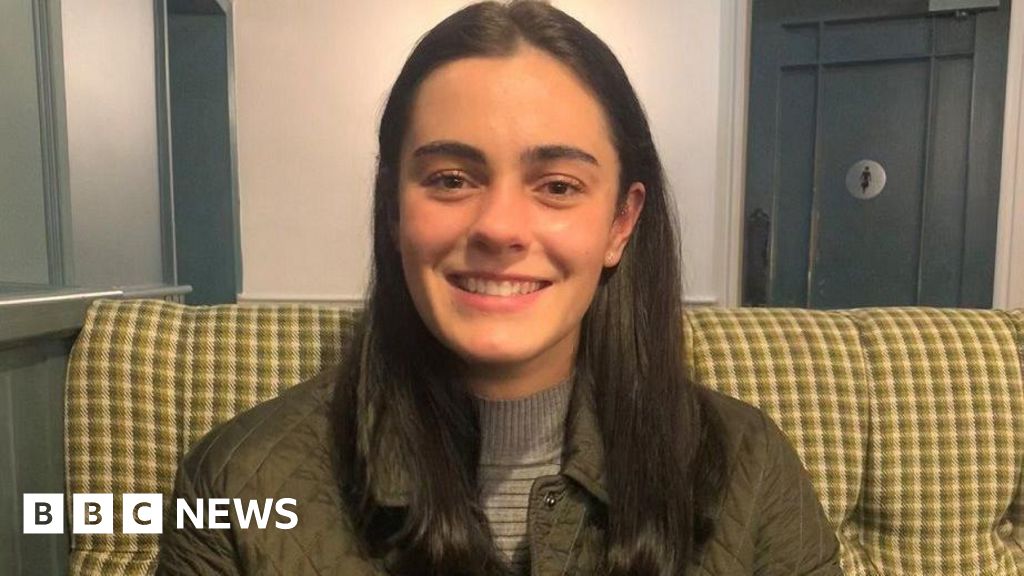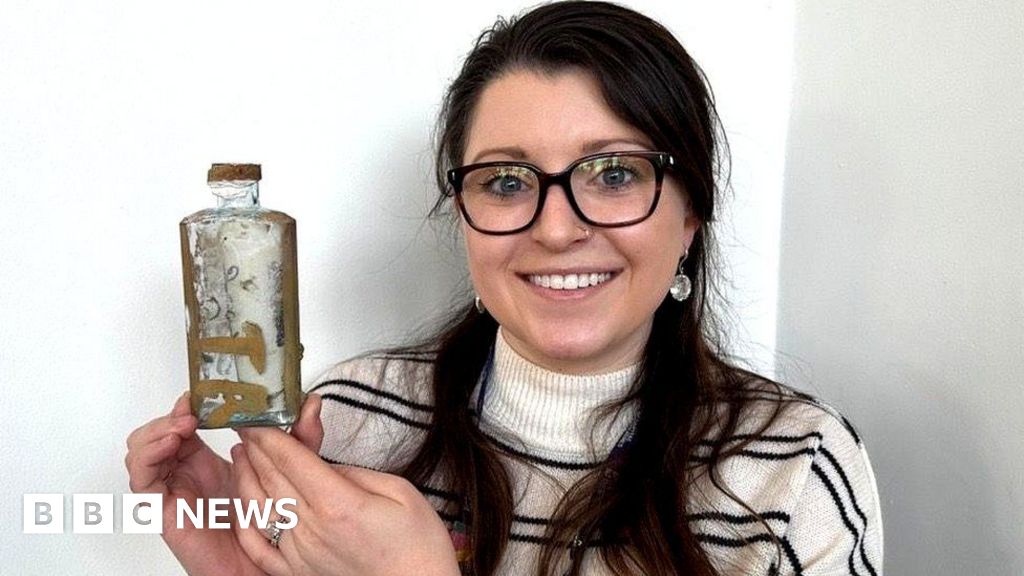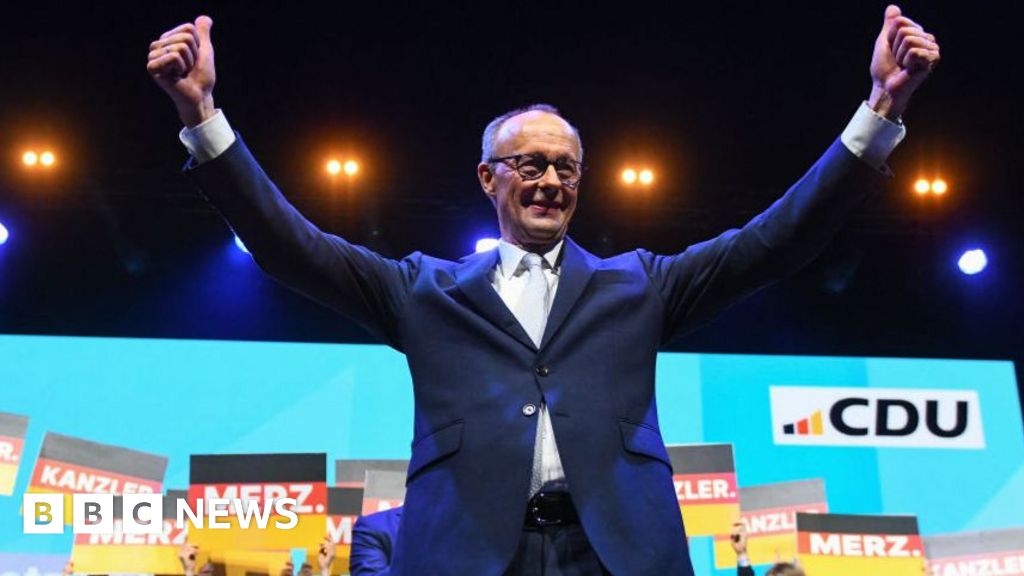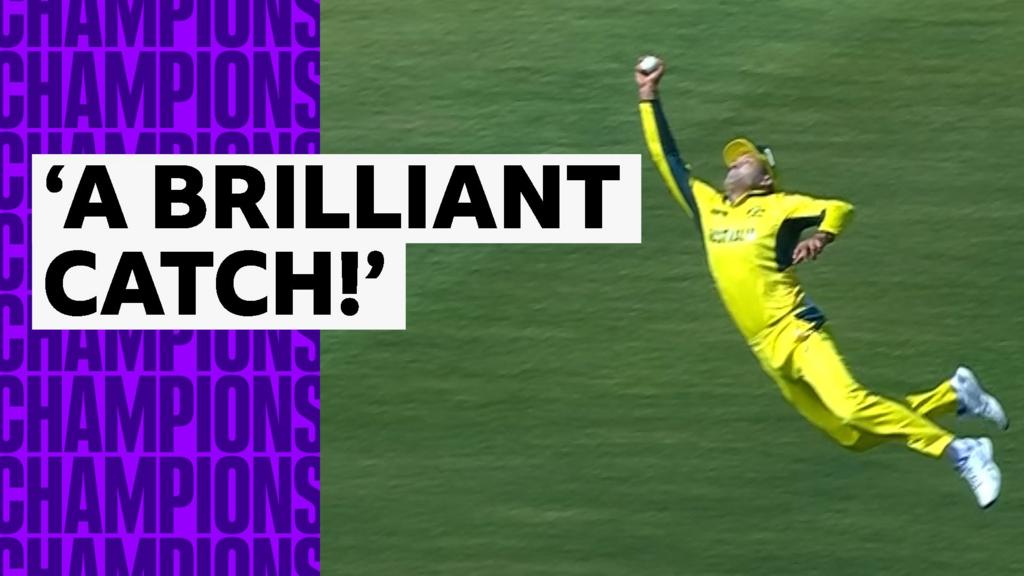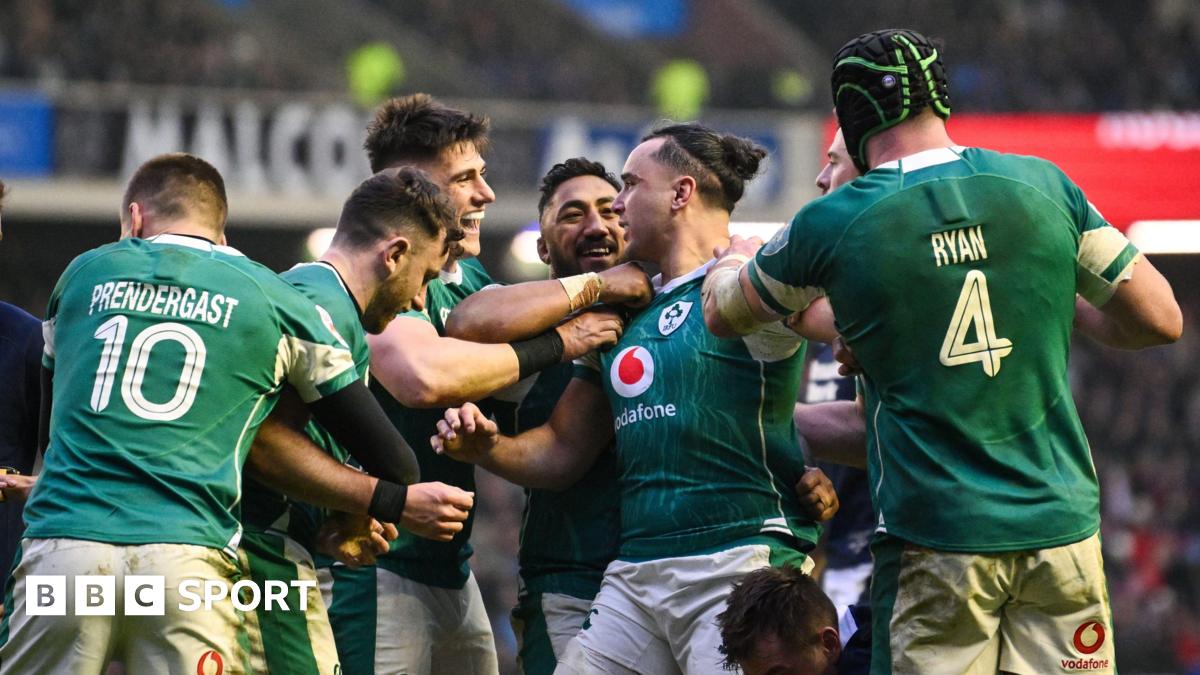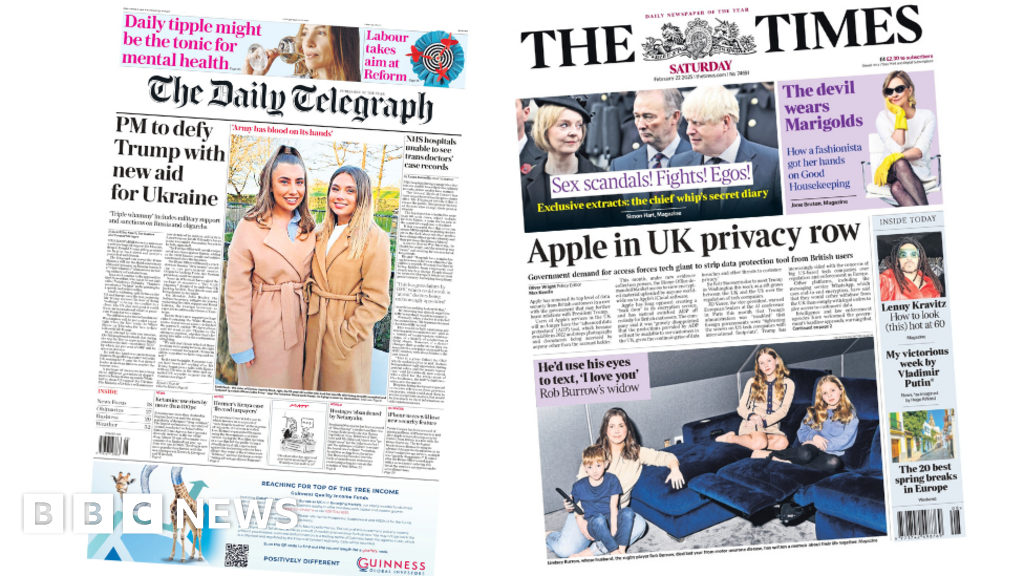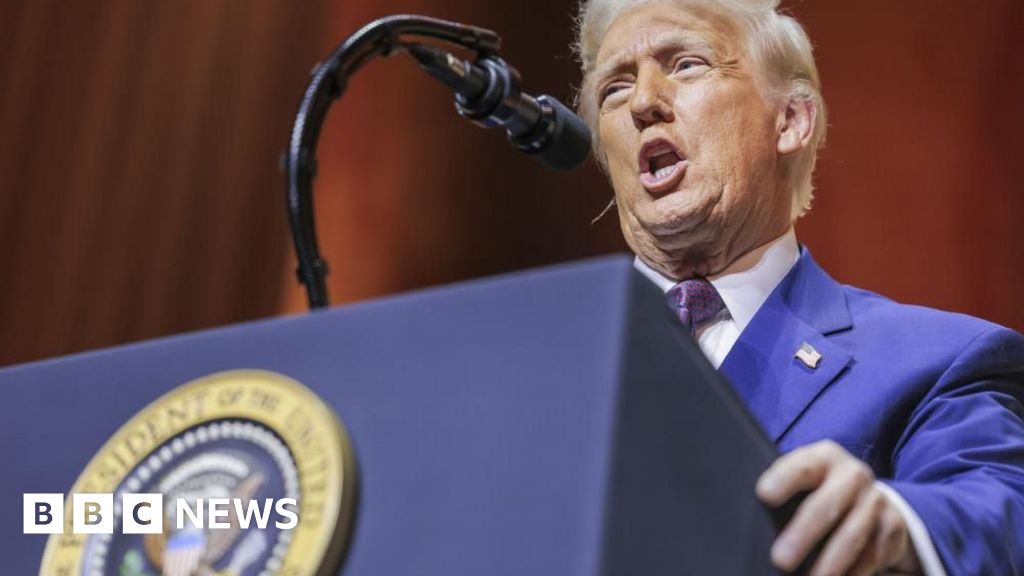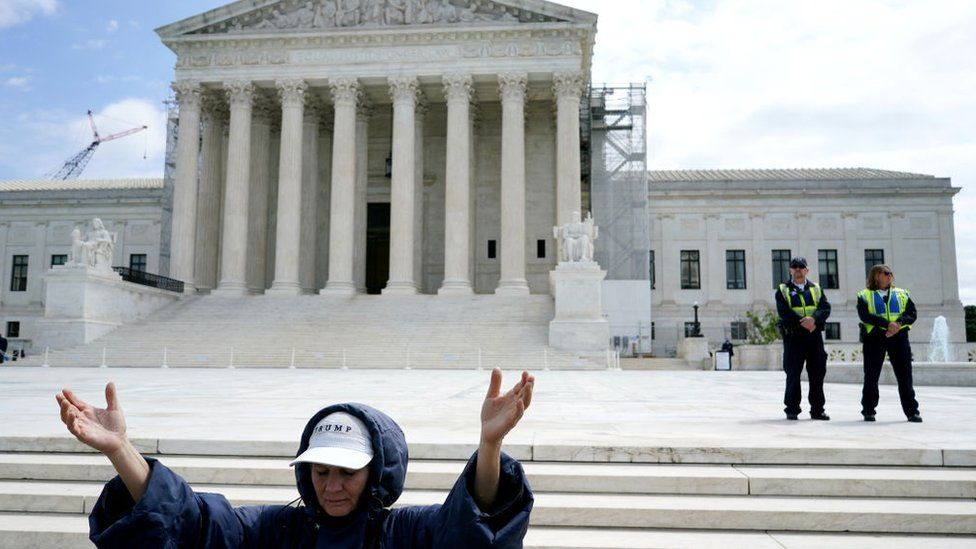 Image source, Getty Images
Image source, Getty Images
A Trump supporter prays outside the Supreme Court as it weighs arguments of presidential immunity
By Holly Honderich
in Washington
For nearly three hours on Thursday, the Supreme Court weighed whether former presidents are immune from prosecution and what exactly it means if they are.
Its answer will determine whether former President Donald Trump can be tried on charges of trying to subvert the 2020 election.
Whatever the decision, each justice indicated that it would shape US democracy for years to come.
"We're writing a rule for the ages," Justice Neil Gorsuch said.
The case, heard in a special session one day after the court's last scheduled argument of this term, hinges on Mr Trump's claim that he is entitled to absolute immunity from criminal charges for actions committed while in office.
According to Mr Trump, this immunity shields him from criminal charges brought by US Special Counsel Jack Smith that he allegedly attempted to overturn the results of the 2020 election.
That trial will remain on hold until the court issues its decision, expected in June.
The justices' pointed questions, levelled at both sides, indicated division within the bench, and suggested a split decision may be likely.
The questions, along with tense exchanges and high-stakes hypothetical scenarios, also showed that both the conservative majority and liberal minority are making the decision with an eye to history. Would total immunity mean a future president was free to use the US military to kill his or her rivals? Or, without it, would presidents leaving office be subject to the whims of individual prosecutors and thrown in jail as part of political vendettas?
While the conservative side seemed most open to the idea that all former US presidents should have some degree of immunity, all the justices sounded sceptical of arguments made by Mr Trump's lawyer, Dean John Sauer, that a former president has near-total protection from prosecution.
Answering questions first, Mr Sauer was grilled by the nine justices on the breadth of that protection.
"How about if the president orders the military to stage a coup?" asked Justice Elena Kagan, one of the court's three liberal justices.
Mr Sauer appeared hesitant to respond before saying it would "depend on the circumstances".
Justice Kagan, sounding incredulous, replied: "That sounds pretty bad, doesn't it?"
But Michael Dreeben, representing the US government, faced the same sharp interrogation as the justices walked through the consequences of leaving US presidents without some level of criminal protection.
"Did I understand you to say... if [the president] makes a mistake... He's subject to the criminal laws just like anybody else?" Justice Samuel Alito asked.
"You don't think he's in a special, peculiarly precarious position?" he continued.
Mr Dreeben responded that "making a mistake" would not land someone under criminal prosecution.

 9 months ago
55
9 months ago
55

